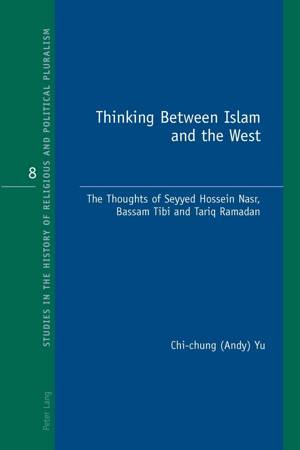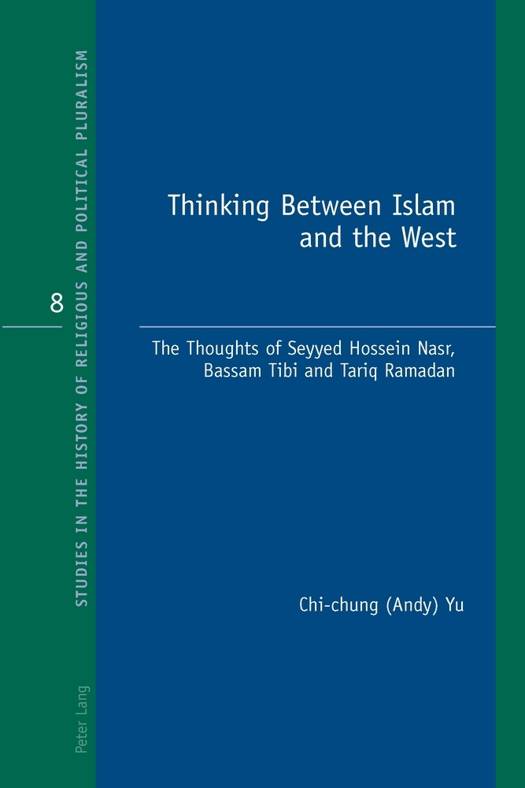
Door een staking bij bpost kan je online bestelling op dit moment iets langer onderweg zijn dan voorzien. Dringend iets nodig? Onze winkels ontvangen jou met open armen!
- Afhalen na 1 uur in een winkel met voorraad
- Gratis thuislevering in België vanaf € 30
- Ruim aanbod met 7 miljoen producten
Door een staking bij bpost kan je online bestelling op dit moment iets langer onderweg zijn dan voorzien. Dringend iets nodig? Onze winkels ontvangen jou met open armen!
- Afhalen na 1 uur in een winkel met voorraad
- Gratis thuislevering in België vanaf € 30
- Ruim aanbod met 7 miljoen producten
Zoeken
Thinking Between Islam and the West
The Thoughts of Seyyed Hossein Nasr, Bassam Tibi and Tariq Ramadan
Yu
€ 81,45
+ 162 punten
Omschrijving
In this book, the author assesses the social vision of three western Muslim intellectuals, Seyyed H. Nasr, Bassam Tibi and Tariq Ramadan. He finds that the thoughts of Nasr and his students promote a kind of tradition-based society, which is in harmony with the Divine Law in Islam and a hierarchical structure of society. The thoughts of Tibi advocate the concept of Euro-Islam, which tries to rationalize Islam and renders it a personal religion in the private domain. Finally, the thoughts of Ramadan emphasize a communicative society, in which dialogue between Muslims and non-Muslims on public affairs is crucial. The author tries to understand how these three social orders can complement each other. He compares and contrasts their ideas in order to show that modern Islamic thought is not monolithic but pluralistic, and that they present different social visions for Islam in the West. However, Muslims are often labelled as a minority group and so implicitly excluded from being part of the West: the thoughts of Muslim writers help reflect this problem. The author maintains that these Muslim intellectuals in the West should be fully recognized as western intellectuals.
Specificaties
Betrokkenen
- Auteur(s):
- Uitgeverij:
Inhoud
- Aantal bladzijden:
- 267
- Taal:
- Engels
- Reeks:
- Reeksnummer:
- nr. 8
Eigenschappen
- Productcode (EAN):
- 9783034307956
- Verschijningsdatum:
- 13/02/2014
- Uitvoering:
- Paperback
- Formaat:
- Trade paperback (VS)
- Afmetingen:
- 150 mm x 224 mm
- Gewicht:
- 408 g

Alleen bij Standaard Boekhandel
+ 162 punten op je klantenkaart van Standaard Boekhandel
Beoordelingen
We publiceren alleen reviews die voldoen aan de voorwaarden voor reviews. Bekijk onze voorwaarden voor reviews.











